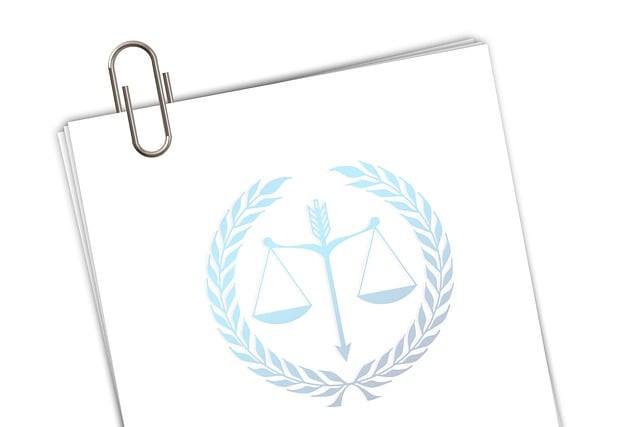In healthcare law, understanding defamation is crucial for maintaining reputations. Defamation occurs through false statements (libel/slander) causing harm. Legal protections exist for those falsely accused, focusing on proving falsity, establishing harm, and demonstrating malicious intent or recklessness. These strategies, bolstered by evidence like medical records, expert testimony, and contextual analysis, are vital in white-collar crime cases. In healthcare defamation cases, successful litigation involves scrutinizing evidence, demonstrating malice, and presenting positive patient outcomes to counter negative reviews. Promptly assembling a team of experienced medical law attorneys is key for effective defenses based on objective clinical data, patient records, and expert testimony.
In the intricate landscape of healthcare, understanding defamation law is paramount to navigate potential legal pitfalls. This article explores key definitions and protections within defamation law, shedding light on common scenarios that arise in healthcare settings. We delve into effective defense strategies for providers and institutions, offering successful approaches to mitigate risks and manage defamation litigation. By armed with this knowledge, healthcare professionals can ensure robust defenses and protect their reputations.
- Understanding Defamation Law: Key Definitions and Protections
- Common Scenario Analysis in Healthcare Defamation Cases
- Effective Defense Strategies for Healthcare Providers and Institutions
Understanding Defamation Law: Key Definitions and Protections

In the intricate landscape of healthcare law, understanding defamation is paramount to safeguarding reputations and fostering trust among corporate and individual clients, as well as within philanthropic and political communities. Defamation refers to the publication of false statements that harm an individual’s reputation, causing potential loss in their professional or personal life. Key definitions include “libel” (written) and “slander” (spoken), both considered defamatory if they are false, harmful, and communicated to others. Protections exist for those falsely accused, ensuring a fair process and preventing unwarranted damage.
Successful strategies in defamation litigation involve demonstrating the falsity of the statements, establishing harm, and proving malicious intent or recklessness. This may include thorough fact-finding, expert testimony, and careful consideration of context. In cases involving white collar and economic crimes, for instance, understanding the specific circumstances and motivations behind defamatory remarks is crucial. By navigating these complexities, individuals and organizations can protect their reputations and mitigate potential legal consequences.
Common Scenario Analysis in Healthcare Defamation Cases

In healthcare defamation cases, a common scenario involves accusations of malpractice or professional misconduct, often stemming from patient reviews and online forums. These platforms, while serving as vital spaces for patient feedback, can also become breeding grounds for false and damaging statements. A successful strategy in such cases is to focus on the veracity of the claims. Law firms representing healthcare providers should meticulously examine the evidence, including medical records, expert opinions, and witness testimonies, to prove that the information disseminated was inaccurate and harmful. By demonstrating malice or reckless disregard for the truth, successful strategies in defamation litigation can be employed to protect the respective business reputation and mitigate potential damages.
Additionally, establishing the impact of these defamations on patients’ trust and the provider’s professional standing is crucial. Patient testimonials and expert witness statements that highlight the positive outcomes and care received can counterbalance negative reviews. This approach not only for his clients but also ensures a fair representation in jury trials by presenting a balanced narrative, which may sway public perception and ultimately lead to a favorable outcome.
Effective Defense Strategies for Healthcare Providers and Institutions

In the face of increasing legal complexities within the healthcare sector, effective defense strategies are paramount for providers and institutions to safeguard their reputations and financial stability. A robust legal defense begins with a comprehensive understanding of the allegations and a meticulous review of relevant documentation. Healthcare organizations should promptly assemble a team of experienced attorneys specializing in medical law and litigation, who can navigate the intricate legal landscape. This strategy ensures a thorough examination of evidence, identification of potential vulnerabilities, and formulation of a strong defensive narrative.
Successful strategies often involve challenging the veracity of accusations, especially in defamation litigation. Healthcare providers can effectively combat these claims by presenting objective clinical data, patient records, and expert medical testimony to counter any misrepresentations or distortions of their services. Furthermore, establishing a track record of ethical practices, adherence to industry standards, and active participation within the philanthropic and political communities across the country can significantly bolster a healthcare institution’s defense in white-collar and economic crimes cases.
In navigating healthcare legal issues, particularly defamation cases, understanding key concepts and employing successful strategies in defamation litigation are paramount. By grasping the nuances of defamation law, including definitions, protections, and common scenarios, healthcare providers and institutions can effectively defend against allegations. Implementing robust internal processes, maintaining detailed records, and fostering open communication contribute to a comprehensive defense strategy. This ensures that patients receive quality care while safeguarding the reputation of healthcare entities in today’s digital era.






